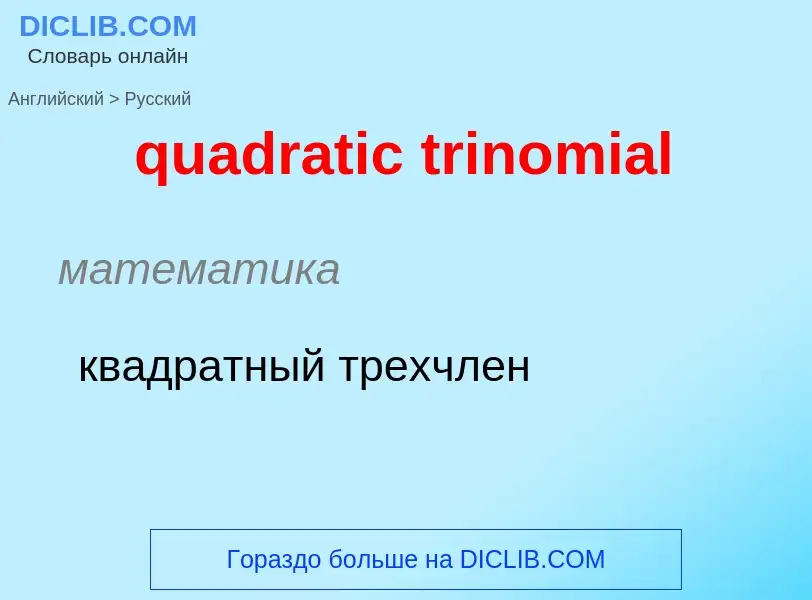Tradução e análise de palavras por inteligência artificial ChatGPT
Nesta página você pode obter uma análise detalhada de uma palavra ou frase, produzida usando a melhor tecnologia de inteligência artificial até o momento:
- como a palavra é usada
- frequência de uso
- é usado com mais frequência na fala oral ou escrita
- opções de tradução de palavras
- exemplos de uso (várias frases com tradução)
- etimologia
quadratic trinomial - tradução para russo
математика
квадратный трехчлен
математика
квадратный многочлен
математика
квадратный многочлен
Definição
Wikipédia
In mathematics, a quadratic polynomial is a polynomial of degree two in one or more variables. A quadratic function is the polynomial function defined by a quadratic polynomial. Before 20th century, the distinction was unclear between a polynomial and its associated polynomial function; so "quadratic polynomial" and "quadratic function" were almost synonymous. This is still the case in many elementary courses, where both terms are often abbreviated as "quadratic".
For example, a univariate (single-variable) quadratic function has the form
where x is its variable. The graph of a univariate quadratic function is a parabola, a curve that has an axis of symmetry parallel to the y-axis.
If a quadratic function is equated with zero, then the result is a quadratic equation. The solutions of a quadratic equation are the zeros of the corresponding quadratic function.
The bivariate case in terms of variables x and y has the form
with at least one of a, b, c not equal to zero. The zeros of this quadratic function is, in general (that is, if a certain expression of the coefficients is not equal to zero), a conic section (a circle or other ellipse, a parabola, or a hyperbola).
A quadratic function in three variables x, y, and z contains exclusively terms x2, y2, z2, xy, xz, yz, x, y, z, and a constant:
where at least one of the coefficients a, b, c, d, e, f of the second-degree terms is not zero.
A quadratic function can have an arbitrarily large number of variables. The set of its zero form a quadric, which is a surface in the case of three variables and a hypersurface in general case.

